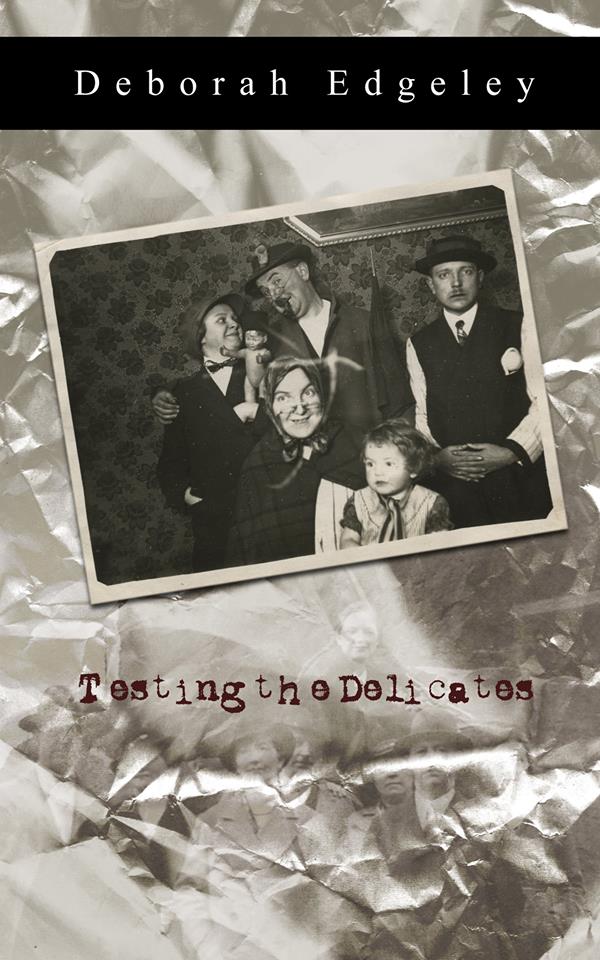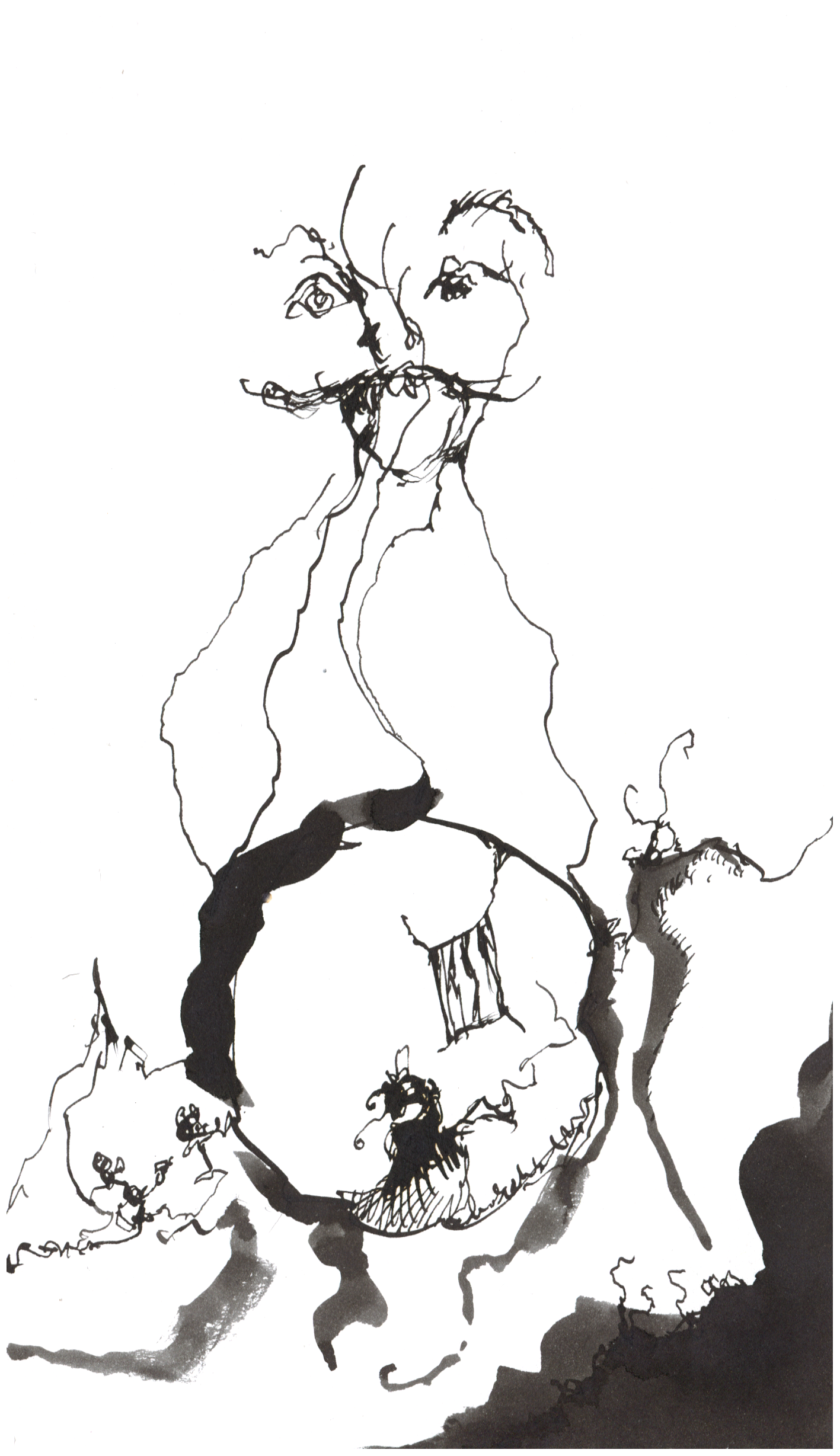Testing the Delicates is a collection of poetry to raise awareness about the stigma surrounding mental health, ignorance about it and prejudice towards it, identity, isolation, memories, and understanding the past through photographs.
The voyage of this short (but perfectly formed) book plots the course of personal thoughts, emotions and memories of its author, Deborah Edgeley, as she retraces many poignant steps of her life, particularly in relation to her early years, and the connection to her mother.
Initial, cursory glances at Testing the Delicates reveal unto the reader a cocktail of emotional depth, portrayed within the forty-three pages of poetry, and prepare us for the literary voyage ahead.
As with all personal journeys, the largest challenges for the author involve:
a) including us readers as enthralled passengers for the duration of the journey.
b) providing us with relevant sources of information and education and
c) allowing us to gain a sense of empathy from our voyage into often-choppy, emotional waters that may easily infringe into whirlpool eddies formed from mental illness and depression.
For this, we naturally require a competent captain at the helm to guide us safely through these waters. Thankfully, for the reader, Captain Deborah Edgeley’s literary skills enhance our journey in two main aspects.
Firstly, the writing is beautifully expressed. This allows all passengers to relax and ease into the words, without fear of any misunderstanding, or vagueness, about the importance of the emotional messages being relayed to us.
An excellent example of this lies within the poem, ‘Thought Pictures’, which focuses on the particular aspect of depression, and how isolating this can make us feel, meaning that expressing our feelings to others becomes much more difficult. The severity of the mental downsides of watching a beloved soul dealing with mental/emotional difficulties is balanced beautifully with lighter, more comforting tones, especially when dealing with ‘imagined’ conversations with the self, at such difficult times. If the beauty and skill of wordsmithing is to conjure up relevant and powerful images via literal expression, then this nails it for me personally, as each line conjured up images of my late mother in a very similar state. Through Deborah’s words, I was able to return to my thoughts from a decade previous; each description supremely apt and meaningful.
…’See your stare, your blink
your unkempt eyebrow raise…
your tongue poke
through your wetted lip
I taste your imagined words
as you jigsaw another shade
to my thought pictures
that float in my head.
Secondly, our understanding is greatly increased, as the author has provided us with a detailed map of our journey with the inspired addition of nine full pages of notes, relating to every given poem.
This is genius, and I sincerely wish that more writers employed this option, especially within the expression of personal poetry. As passengers, we instantly know exactly where we’re going, as we are in possession of a skilled ‘tour guide’, providing us with precise information about every valuable sight along the way.
On a personal level, as someone who can easily empathise with various aspects of the subject matter, so beautifully relayed via Deborah’s words, this ‘map’ addition increases both the closeness and power of the poetry, allowing me to nod along throughout the verses, and relate them to my own personal experiences.
Criticisms? I have two:
Firstly, I got to the end of this book and eagerly wanted to hear more. The writing is so ‘spot on’ that I didn’t want the voyage to end, and became disappointed to return to the home port and disembark back on shore.
Secondly, Deborah is clearly a very skilled writer, and the prose contained within her ‘Notes’ section is relayed both simply and effectively.
As such, if there is to be a follow up book (hint hint) I would personally love to see this aspect expanded into some sections of ‘life writing’.
Like Deborah, I gave up my job to care for my ailing mother. One poem leapt out at me, ‘Act One, Scenes 1-12’, because it so beautifully emphasises those days when emotional closeness is eclipsed by the dark difficulties of basic communication, both within everyday, mundane topics, and those covering more difficult scenarios.
Shall I take you to Daddy’s grave,
tulips or sweet peas?
Talk to him or stay silent?
Trace the gold letters
with your hand or mine?
From the heart, exemplifying intelligent, thoughtful, caring words which stretch both the mind and soul, aided perfectly by illustrations from the talented artist, Mark Sheeky.
Encore please!
Whose Apple Thou Art?
In Greenwood, studded with crab and perry,
out of tempest mind tumbled Caliban.
So say yeomen of sixteenth century,
‘Bring thee where the crabs grow,’ said the madman.
Drinking proverbial acidity,
Gossip’s Bowl was spice sipped by Bidford folk
in restaurants of ancient forestry
acid draughts intoxicate shallow jokes.
But three crabbed months had soured themselves to death.
‘He’ll never have Miranda,’ they concurred.
The Bidford souls muttered under their breath
‘Goddess and a madman?’ with spoon they stirred.
‘Whose apple thou art, gem grown from deep root?’
‘Yours, but I will never bear sweet fruit.’
Testing The Delicates from Amazon



